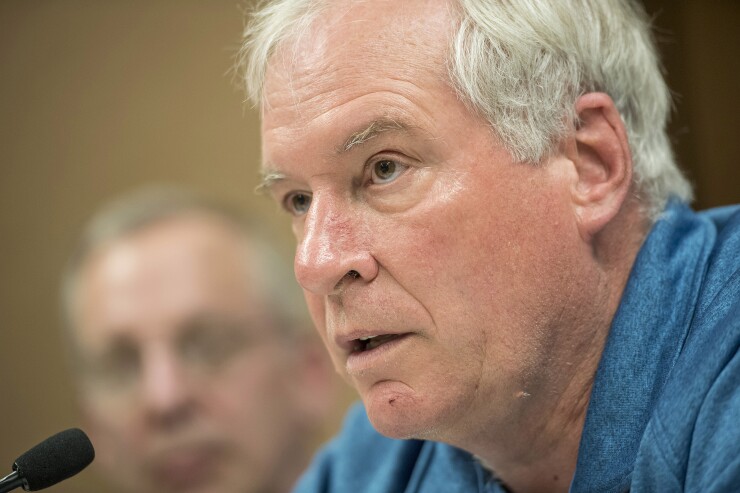Federal Reserve Bank of Boston President Eric Rosengren said the central bank should raise rates in a “regular and gradual” way despite low inflation, because weak price pressures appear temporary and a tight labor market risks overheating the economy.
“Appropriate risk mitigation would argue for continued gradual removal of monetary accommodation, even though we are currently below the inflation target,” Rosengren said in prepared remarks for a speech Wednesday in New York. “I believe policy makers should not overreact to low current inflation readings that are widely expected to be temporary.”

Rosengren, who doesn’t vote on monetary policy this year, has become a steady advocate since 2016 in favor of raising rates to quash potential financial instabilities. His support for continued policy tightening lines up with Chair Janet Yellen, who said Tuesday it would be “imprudent” to keep rates on hold until inflation was back at the Fed’s 2% target.
Officials are concerned that persistent labor market tightness will push prices higher and that waiting too long to raise rates could allow inflation to get out of hand.
“The declines in the unemployment rate below the level most see as sustainable seem likely to be more long-lasting, which is one reason for my expectation that tight — and tightening further — labor markets will result in higher wages and prices over time," Rosengren said.
As unemployment continues to fall, it poses the risk that “an overheated economy will lead to price or asset-price inflation, risking the sustainability of the recovery,” he said.
U.S. joblessness has fallen to 4.4%, below the level that the median Fed official sees as sustainable in the longer term, yet prices have been slow to respond. Headline inflation was stuck at 1.4% in July, more than half a point under the Fed’s 2% goal.
Some officials have voiced concern that raising rates before inflation shows progress in increasing toward 2% could make it harder to reach that target.
Nonetheless, investors currently see a 70% probability that policy makers will hike rates in December, following Yellen’s argument that the Fed should continue to tighten policy despite uncertainty over the forces restraining inflation.
Rosengren saw the situation in a similar light.
“It is my view that regular and gradual removal of monetary accommodation seems appropriate,” he said, while noting that forthcoming economic data may be unreliable after hurricanes Harvey, Irma and Maria disrupted activity.
“Discerning the underlying trends in unemployment and inflation — looking through transitory effects — is likely to be quite difficult in coming months,” Rosengren said, as hurricane effects play out in economic data. “It may be difficult to be fully ‘data dependent’ in the near-term.”




